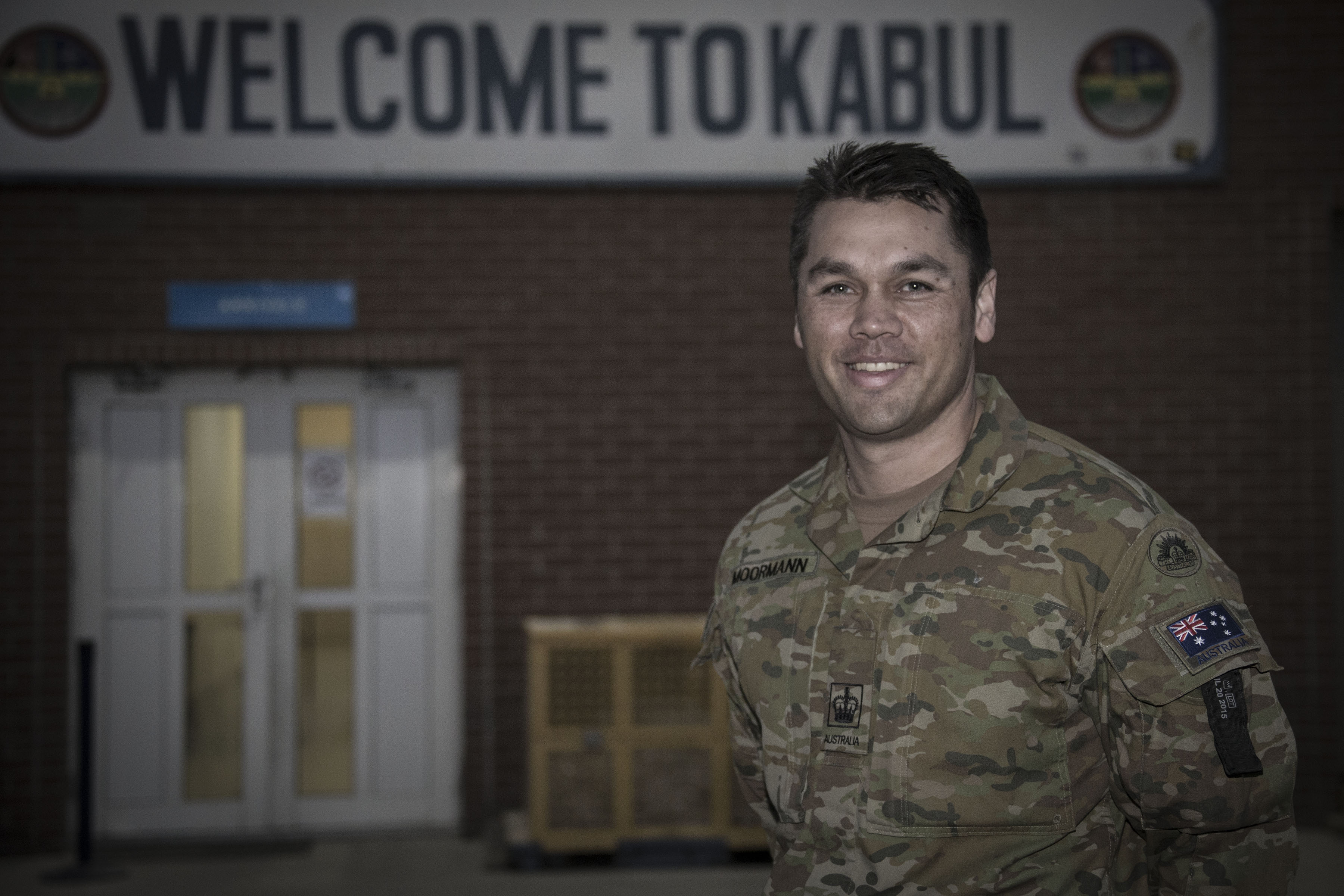Successful transition from Warrant Officer to Captain requires an appreciation of your own experience, coupled with an open mind to adapt to your new role. Where once you were an upholder of the status quo, you are now an innovator – an agent of change within Army who will help us win the land battle.
So you have been successful at the Army Senior Non-Commissioned Officer and Warrant Officer Commissioning Scheme(ASWOCS) selection board, you, like myself, are probably asking many internal questions, such as; 'What challenges will I face?', 'Have I made the right decision?', 'Will I succeed?'.
My personal experience with consultation with other successful ASWOCS officers will hopefully assist future successful candidates navigate their way through the initial transition period as a commissioned officer. By no means are they gospel nor endorsed by the Director of Officer Career Management - Army (DOCM-A), but will hopefully provide a little expectation management and allow newly transitioned officers to find their feet and maintain their confidence during a new phase of their career.
After serving as the Chief Clerk of 6 RAR, I pondered where my career was going. For me, I had reached the Holy Grail within my trade, a subject matter expert (SME) within a frontline unit. So what was next? I felt I had not fulfilled my potential in Army. For many years, various command teams had advised me to have a crack at the ASWOCS selection and continue my career as a commissioned officer. I had my reservations, I didn’t feel it was necessarily for me, I enjoyed being a soldier and was very comfortable in my skin. But herein lay my exact problem, I was too comfortable. Fortunately for me I received the best piece of advice whilst serving as the Chief Clerk of Task Group Afghanistan. I was advised that if I was not getting the most out of myself, I was not offering my full capability.
I realised that in order to grow, I had to take on a new challenge and remove myself from the very comfortable perch from which a Warrant Officer finds themselves (I’ll save that argument for another submission). From here I found myself sitting before the ASWOCS selection board, and the rest is now history.
I have broken down this guide into five simple points for you to consider and put into your bag of tricks:
'Be flexible and expect the unexpected'
Given my experience and posting history I felt well equipped to deal with the vast majority of issues to come my way, or so I thought. Week one of my new posting as the 2IC of a sub-unit, my new Officer Commanding (OC) advised me that he would be away for the next seven weeks. Here I was, a first year Captain leading the Company on its first field activity for the year. I am comfortable to admit, it was a very daunting experience and I was not prepared for this situation. I had been exposed, I was no longer an SME, no longer a Company Sergeant Major (CSM), no longer a Non-Commissioned Officer (NCO), I was now Acting-Commander of a logistic force of 130 personnel. I was forced to tap into my bag of tricks from the subject courses I had attended over the years. What I identified was I had a big gap to fill and I had to fill it fast.
I have an increased appreciation of the important platform the Royal Military College (RMC) provides our junior officers. It covers the wide spectrum of command and leadership that cannot be replicated through our Subject courses. Fortunately for me, the support I received from my Commanding Officer (CO) who gave me the freedom of action to make mistakes and also a willingness to support and mentor me to be better in the future.
'It’s not all cucumber sandwiches'
A comical perception of an officer from a NCO perspective is that of a cucumber sandwich eating, Pimm’s sipping, RM Williams wearing individual, making decisions without consideration of the soldiers expected to follow them. Well, Ladies and Gents, I am a here to tell you, it is far from the truth. As a junior officer, they are thrown into the deep end, but unlike RMC/ADFA entry officers, as an ASWOC you will have an advantage of situational awareness that comes from the experience of working within Army. But if you are expecting a cruisy time because you were a top performing WO2, you have come to the wrong place. Time and space management is crucial to a successful transition. You can also forget doing every job to perfection, your old 80% is your new 100%, there is just far too much to get done. As they say in planning, an 80% plan executed on time is better than the100% plan executed late. Don’t come up with a perfect solution, select a solution that you can perfect!
'Remember where you came from, but don’t let it define your future'
Having spent 17 years as an Other Rank (OR), attending the full suite of Subject courses along the way to Warrant Officer, but also being posted across a broad spectrum of units, it is fair to say that I built up a fair idea of what Army is and what we do. I believe this is the biggest trap for any successful ASWOCS Officer. This experience has got you to this point, don’t let it define your future. The Army, as I have found, has so much more to offer and your new peers are intelligent, energetic and enthusiastic. Embrace them, you will feed off their energy. Don’t be stuck in your ways, learn new methods, new approaches, continue to educate yourself, it doesn’t have to be formal education, just read, read and read some more. Don’t be afraid to open your mind and challenge how Army works. Army needs you to be innovative and your new career as an officer will be better for it.

'New Kid on the Block'
Fortunately for me, I was a 25 year old in a 38 year old body, so embracing my new cohort was a bit more natural. Put it this way, I was very comfortable riding kids trikes in the officer’s mess on All Corps Captains Course (ACCC). Make the effort to develop your peer network, and do it early, you will need them, and they need you. Don’t shy away from the new generation, they think in fantastic innovative ways. Help them develop, protect them and mould these young officers so they are equipped to look after soldiers, the way you wanted to be looked after, those many years ago.
'Looking Back'
Over the first two years as a commissioned officer I have faced more challenges than I had in my previous 17 years as an NCO. These challenges also came with the increased complexity of being responsible for the soldiers I administered and at times commanded. I have questioned my decision to commission on numerous occasions, but I must say, I wouldn’t change it for the world. I have learnt to deal with the closest crocodile to the boat, you will find in time some of the crocodiles go away. I have learnt to deal with what is important and what is not and to apply the required amount of attention that is needed and no more. You will become more comfortable in your own skin and most of the routine will be semi-autonomous. By pure numbers, your officer cohort will be more intimate and if given the opportunity will be far greater than you have experienced before. You are heavily reliant on your fellow officers be they peer, sub-ordinate or superior. Laying the foundation for great relations has provided me with a better platform to launch from both professionally and socially.
If you decide to commission and are successful, do so with an open mind and be prepared to be tested. Embrace this challenge, accept that you will fail at times but ultimately through dedication and experience, you will develop and show the attributes that identified you as a suitable candidate for commissioning.
Good luck and good soldiering.










All my love
Clem
It is very timely considering many people are about to commence their ASWOC jourmey in the new year.
It is also interesting for RMC officer graduates to see an ASWOCS' perspective on the world of junior officers
JK Thomas